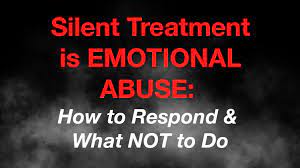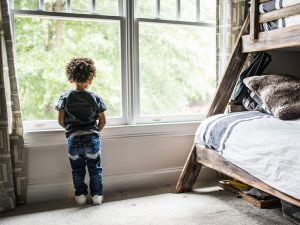Original content by Ashley Berges

The Silent treatment, when used with children has a long-lasting effect reaching into adulthood
Many parents believe that the silent treatment is a good way to discipline their children. It is not physical and it does not involve yelling and screaming. Parents practice this because they think it’s the best option. On the other hand, some parents use it because it was the discipline technique used on them when they were children.
The impact of the silent treatment is far-reaching. When the silent treatment is used against children, it makes them feel powerless, small, and intimidated. Often children feel some guilt when they do something wrong, this feeling of guilt helps prevent the child from repeating the offense. The silent treatment does not seem to focus on the guilt, but more on intimidation. The child does not understand what is happening. They try to get a reaction from the parent that is not speaking to them. They try to get this reaction to stop the silent treatment and their feelings of disconnect from their parents.

The silent treatment affects a child emotionally, just as much as verbal abuse does. It causes children to feel unwanted, and make them feel that they are not able to express their emotions.
Both adults and children lose their will when the silent treatment is used. They tend to let others take the lead to avoid rejection. One of the biggest rejections a person can feel in life is having someone goes silent against them.
The silent treatment creates insecurity between a child and a parent. When parents stop communicating it creates fear inside the child about what might happen to them next. This results in either increased anxiety or aggression in the child. Furthermore, children learn that they need to do whatever they can to make their parents happy to prevent the silent treatment.

The silent treatment breaks down the bond between a parent and a child. When children do not feel safe sharing with their parents the bond starts to shift. If children are not comfortable sharing their feelings with their parents, then who can they express themselves to? This results in a decrease in children’s self-esteem. It creates problems in communication and leads to a shut down within the child. Consequently, this causes the child to display avoidance behaviors in order to avoid conflict.
Ultimately, using the silent treatment as a form of discipline with children can either push them away or create a much different child. When it pushes the child away it cuts the bond between parent and child. On the other hand, it can also create a child who becomes very co-dependent and attached. The child is constantly trying to please their parents, and is always striving towards perfection.
We must realize how the silent treatment affects children. As children grow up to be adults, the silent treatment that was used against them, impacts and triggers them to react the way they do.
Watch the full video here







